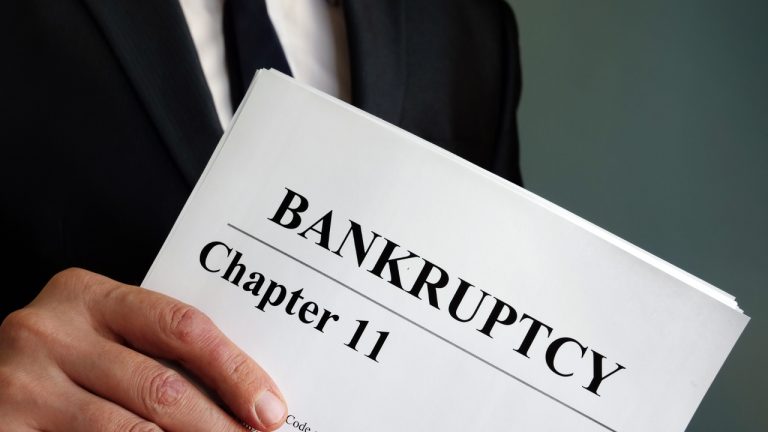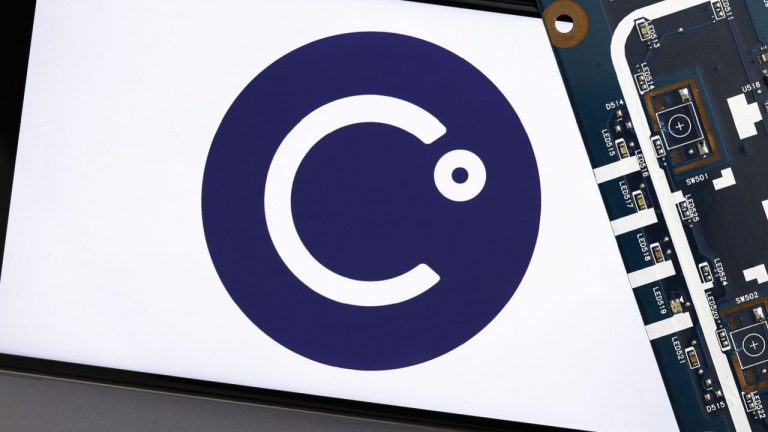 On March 17, 2023, SVB Financial Group, the parent company of Silicon Valley Bank, filed for Chapter 11 bankruptcy protection in the Southern District of New York. The company stated that it is no longer associated with Silicon Valley Bank (SVB) after the Federal Deposit Insurance Corporation (FDIC) placed it into receivership last week. 3 […]
On March 17, 2023, SVB Financial Group, the parent company of Silicon Valley Bank, filed for Chapter 11 bankruptcy protection in the Southern District of New York. The company stated that it is no longer associated with Silicon Valley Bank (SVB) after the Federal Deposit Insurance Corporation (FDIC) placed it into receivership last week. 3 […]
The ruling allows the crypto lender a path out of its bankruptcy, but it still has to undertake some due diligence with Binance US before the sale is final.
Bankrupt cryptocurrency lender Voyager Digital has won court approval to sell over $1 billion of its assets to Binance US.
The approval was granted by United States Bankruptcy Judge Michael Wiles on Mar. 7, which came after four days of arguments presented by Voyager and the U.S. Securities Exchange Commission (SEC).
Wiles said he would give the trading platform permission to close the Binance US sale and issue repayment tokens to impacted Voyager customers, which would give them back approximately 73% of what they're owed.
Wiles rejected a series of arguments by the SEC that the redistribution of the funds from Voyager to Binance.US would violate U.S. securities laws, according to a Mar. 7 report from Bloomberg:
“I cannot put the entire case into indeterminate deep freeze while regulators figure out whether they believe there are problems with the transaction and plan."
Peter M. Aronoff, a lawyer with the Department of Justice (DOJ) said it's considering appealing Wiles' decision.
The judge's decision comes just over a week after 97% of 61,300 Voyager account holders were found to be in favor of the current Binance.US restructuring plan, according to a Feb. 28 filing.
This is a developing story, and further information will be added as it becomes available.

The SEC claims the transactions involved with redistributing the funds to impacted Voyager account holders will trigger U.S. securities laws.
The United States Securities Exchange Commission (SEC) won’t be allowed to fine executives involved in Voyager Digital should it end up issuing bankruptcy tokens to help repay impacted customers, bankruptcy judge Michael Wiles has said.
The comments from Wiles came on Mar. 6, the third day of hearings regarding a plan by Voyager to issue a repayment token and sell $1 billion of assets to Binance.US.
The SEC earlier argued that the repayment token would constitute an unregistered security offering, while Binance.US is operating an unregulated securities exchange.
In a supplemental objection statement, it also objected to a legal protection which stated that no U.S. agency, including the SEC, will be able to bring “any claim against any Person on account of or relating to the Restructuring Transactions.”
Essentially, this means that executives and restructuring advisers involved in Voyager’s bankruptcy would be shielded from lawsuits if they implement the bankruptcy plan, as long as it is court-approved.

While the SEC described these provisions as “extraordinary” and “highly improper,” Wiles explained that giving the SEC such authority would “leave a sword hanging over the heads of anybody who’s going to do this transaction,” according to a Mar. 6 Bloomberg report, stating:
“How can a bankruptcy case or any court proceeding function with that kind of suggestion?”
SEC lawyer Therese Scheuer argued however that the legal protections are so broad that Voyager employees and lawyers would have permission to violate securities laws. After debate, Voyagers lawyers agreed to narrow the scope of legal releases, according to Bloomberg.
Related: Voyager victim calls for trustee to seize control of the estate
The trading platform officially filed for bankruptcy on Jul. 5 in an attempt to restructure the firm and “return value” back to over 100,000 customers.
The court has been considering a restructuring plan to bring Voyager out of Chapter 11 bankruptcy which would first announced on Dec. 19.
The plan would see crypto exchange Binance.US acquire its assets for $1.02 billion — an option Voyager said at the time represented the “highest and best bid for its assets.”
The SEC objected to the sale on Feb. 22, claiming aspects of the restructuring plan could breach securities laws. The regulator was then criticized over its ambiguous reasoning for the objection in a Mar. 2 court hearing.
A Feb. 28 court filing found that 97% of 61,300 polling Voyager account holders were in favor of the current Binance.US restructuring plan.


A U.S. judge scolded the SEC over its non-specificity on its objection to Voyager’s restructuring deal and asked for specifics on its concerns.
The bankruptcy judge on Voyager Digital’s case has reportedly scolded the United States securities regulator over its ambiguous reasoning for objecting to the crypto lending firm’s proposed sale to Binance.US.
At a Mar. 2 hearing in a New York court, U.S. bankruptcy judge Michael Wiles said the Securities and Exchange Commission (SEC) had basically asked to “stop everybody in their tracks” without explaining how to address concerns it had over the deal according to a Reuters report.
The court was considering a restructuring plan announced on Dec. 19 last year to bring Voyager out of Chapter 11 bankruptcy that would see crypto exchange Binance.US acquire its assets for $1.02 billion — an option Voyager said at the time represented the “highest and best bid for its assets.”
The SEC however filed an objection to the sale on Feb. 22 claiming aspects of the restructuring plan could breach securities laws, namely the crypto transactions that will need to happen to rebalance funds to redistribute to Voyager account holders.
In court, SEC attorney William Uptegrove offered a reserved answer to Judge Wiles when asked if the regulator believes the plan violated the law, saying:
"We can't take a position at this point. The SEC is a deliberative body, and its process is a nonpublic one by federal law."
Wiles hit back saying "deliberative is one thing, but what have you done?" and added, "if there are reasons to be concerned here, I need to hear specifics."
⚠️ Judge Wiles slamming the SEC rep about their objection. ⚠️
— VGX Heroes (@VGX_Heroes) March 2, 2023
Says, (paraphrase) "You're asking the debtor to prove that the cryptos being transacted are not securities, but you've given no regulatory guide as to what that is."
The sale requires court approval, along with the go-ahead from the SEC and the Committee on Foreign Investment in the United States (CFIUS) which is probing the deal to review if it will entail a foreign investment and raise national security concerns.
Judge Wiles is set to hear continued arguments on the bankruptcy plan on Mar. 3.
Related: FTC announces investigation into Voyager’s ‘deceptive and unfair marketing’ of crypto
The proposed Binance.US plan would transfer Voyager customers to the crypto exchange, who would be able to withdraw their funds for the first time since the platform filed for bankruptcy in July last year.
Customers would reportedly recover over 70% of their deposited value as at the time of the bankruptcy, in a poll of 61,300 account holders with claims against the crypto lender, the plan was favored by 97% of Voyager’s customers.
 FTX debtors have filed a motion with the court requesting to dismiss its Turkish subsidiaries from the Chapter 11 bankruptcy proceedings. The defunct crypto exchange’s lawyers believe dismissing the entities “is in the best interests” of creditors, and FTX debtors do not believe Turkish authorities “or any liquidator” in the country will cooperate with officials […]
FTX debtors have filed a motion with the court requesting to dismiss its Turkish subsidiaries from the Chapter 11 bankruptcy proceedings. The defunct crypto exchange’s lawyers believe dismissing the entities “is in the best interests” of creditors, and FTX debtors do not believe Turkish authorities “or any liquidator” in the country will cooperate with officials […]
A lawyer for Genesis is optimistic it can resolve creditor disputes before the week is out while the firm could exit bankruptcy proceedings in four months.
A lawyer for bankrupt crypto lending firm Genesis is optimistic the firm can resolve its creditor disputes as early as this week and the company could come out of Chapter 11 proceedings by late May.
Genesis’ lawyer Sean O'Neal made the comments at a Jan. 23 initial hearing at the United States Bankruptcy Court for the Southern District of New York, according to a Reuters report.
He added Genesis had "some measure of confidence" it would resolve disputes with creditors by the end of the week and, if needed, would look for the judge to install a mediator, but said:
"Sitting here right now, I don't think we're going to need a mediator. I'm very much an optimist."
Genesis filed for Chapter 11 bankruptcy on Jan. 19. At the time it already had a restructuring plan along with a path pursuing a “sale, capital raise, and/or an equitization transaction" so it could potentially “emerge under new ownership.”
The bankruptcy comes nearly two months after Genesis suspended withdrawals in November 2022 citing market turbulence caused by the bankruptcy of crypto exchange FTX.
A series of "first-day" motions, standard in bankruptcy proceedings, were granted by Judge Sean Lane to Genesis which included allowing the firm to pay employees and vendors.
Lane added Genesis did not need to reveal customer names on its creditor's list, citing privacy concerns. Lane even suggested the lender warn users about possible phishing scams if the names are later made public.
Genesis said it will sell its assets at auction with a plan to exit its bankruptcy in a little under four months on May 19.
Related: BlockFi exec argues bankruptcy court should approve bonuses to retain talent
It reported having just over $5 billion in assets and liabilities and owes over 100,000 creditors at least $3.4 billion. Genesis’ withdrawal suspension last year impacted users of a yield-bearing product it managed called “Earn” from the Gemini exchange.
Gemini is Genesis’ largest creditor and is owed nearly $766 million.
Its largest debtor was its parent company, Digital Currency Group (DCG), which owes Genesis around $1.65 billion inclusive of $575 million of loans due in May and a $1.1 promissory note maturing in 10 years' time.
Even though DCG is facing its own financial troubles — the bankruptcy did not include DCG. Similarly, the Genesis entities handling derivatives, spot trading, broker-dealer and custody are not part of the proceedings and are continuing operations according to Genesis.

The co-founder of US-based exchange giant Gemini is announcing his exchange will sue the parent company of bankrupt crypto lender Genesis. Yesterday, Genesis Global Capital, LLC filed for Chapter 11 bankruptcy after weeks of speculation that they could do so. The Gemini co-founder and his twin brother Tyler Winklevoss have been in a public social media spat with Genesis’ […]
The post Cameron Winklevoss Says Gemini Will Sue Digital Currency Group and Barry Silbert As Genesis Files for Bankruptcy appeared first on The Daily Hodl.

Crypto lender Genesis Global has become the latest firm to throw in the towel following the collapse of FTX, filing for Chapter 11 bankruptcy protection in New York.
Cryptocurrency lender Genesis has filed for Chapter 11 bankruptcy in the Southern District of New York.
The firm has estimated liabilities of $1 billion to $10 billion and assets in the same range, according to the Jan. 19 filing.
Earlier reports claimed the company had been considering filing for bankruptcy protection if it was unable to raise capital to stem its liquidity crisis.
In a Jan. 19 press release, Genesis said it had been engaged in discussions with its advisors "to its creditors and corporate parent Digital Currency Group (DCG) to evaluate the most effective path to preserve assets and move the business forward.”
“Genesis has now commenced a court-supervised restructuring process to further advance these discussions.”
The company’s Chapter 11 plan sees it contemplating a “dual track process” pursuing a “sale, capital raise, and/or an equitization transaction" that would apparently enable the business "to emerge under new ownership.”
The derivatives, spot trading, broker-dealer and custody businesses of Genesis are not part of the Chapter 11 proceedings and will continue operations according to the firm.
It also claimed to have more than $150 million in cash on hand that it believes "will provide ample liquidity to support its ongoing business operations and facilitate the restructuring process."
The restructuring process will be led by an "independent special committee" of the company's board of directors, and Genesis says the process is aimed at providing "an optimal outcome for Genesis clients and Gemini Earn users."
The firm suspended withdrawals from its platform in November 2022 amid market turbulence caused by the collapse of FTX. The move impacted users of Gemini Earn, a yield-bearing product for users of the Gemini cryptocurrency exchange managed by Genesis.
Related: Gemini and Genesis’ legal troubles stand to shake up industry further
Gemini co-founder Cameron Winklevoss tweeted the bankruptcy is a "crucial step" toward Gemini users being able to recover their assets but claimed DCG and its CEO Barry Silbert "continue to refuse to offer creditors a fair deal" and threatened to file a lawsuit "unless Barry and DCG come to their senses."
6/ Unless Barry and DCG come to their senses and make a fair offer to creditors, we will be filing a lawsuit against Barry and DCG imminently.
— Cameron Winklevoss (@cameron) January 20, 2023
Both Genesis and Gemini are facing charges from the United States Securities and Exchange Commission (SEC) for allegedly offering unregistered securities through the Earn program.
Fears are mounting over Genesis' parent company DCG as it may have to sell part of its $500 million venture capital portfolio to try to offset Genesis' liabilities.
On Jan. 17, DCG halted dividend payments in a move aimed at "reducing operating expenses and preserving liquidity.” The sale of its crypto media outlet CoinDesk is also reportedly being weighed which could net DCG $200 million.
 Two days ago, bankruptcy administrators and FTX debtors published an update for unsecured creditors claiming the discovery of $5.5 billion in liquid assets. Roughly $3.5 billion of these funds are cryptocurrency assets, with 11 different digital currencies classified as “liquid assets.” However, two of the firm’s top cryptocurrency caches are not liquid as the company’s […]
Two days ago, bankruptcy administrators and FTX debtors published an update for unsecured creditors claiming the discovery of $5.5 billion in liquid assets. Roughly $3.5 billion of these funds are cryptocurrency assets, with 11 different digital currencies classified as “liquid assets.” However, two of the firm’s top cryptocurrency caches are not liquid as the company’s […] A New York bankruptcy court has ruled the deposits on high-interest-earning accounts belong to Celsius, the embattled former cryptocurrency lending firm, that filed for Chapter 11 bankruptcy protections in July. The decision establishes a precedent that might affect the status of other, similar cases involving crypto companies like Blockfi and FTX. Celsius Obtains Ownership of […]
A New York bankruptcy court has ruled the deposits on high-interest-earning accounts belong to Celsius, the embattled former cryptocurrency lending firm, that filed for Chapter 11 bankruptcy protections in July. The decision establishes a precedent that might affect the status of other, similar cases involving crypto companies like Blockfi and FTX. Celsius Obtains Ownership of […]